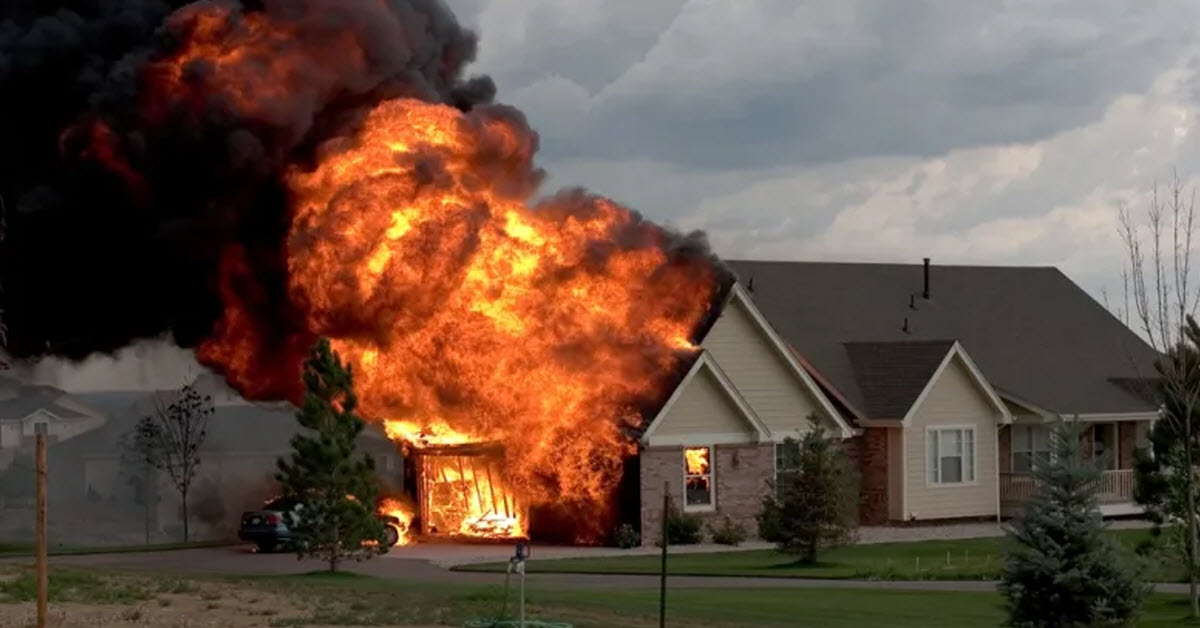There are many emergencies that could affect a wide area and thousands or perhaps even millions of individuals may be affected. There are also those that can affect individuals or single families but the effects can be equally as devastating. One of those emergencies that needs to be prepared for in advance is a house fire. This is an event that is not predictable and when it takes place, quick action is imperative if you are going to survive.
Don’t wait until the issue takes place before you have a plan. Careful planning is the most important thing that you can do because a house fire can be life-threatening within just a matter of minutes. Thousands of people die every year as a result of house fires in the United States so it is a very serious problem.

Before a fire happens, it is important to have a preplanned escape route in mind. Every member of your family should be included in this plan, including small children. If the fire happens between you and the area where your children are, it may not be possible for you to get to them directly so they will need to find their way out using a predetermined escape plan. Make sure that you have at least two ways out of each room. One should be fairly basic and the other may require additional work, but it still should be accessible. If you have any security bars on your windows and doors, be sure that everyone is aware of how to remove them in the event of a fire.
Smoke alarms are also a very important part of keeping your family safe in the event of a fire. You can think of them as being an emergency alert system that is available 24 hours a day, seven days a week. Be aware of the fact that there are different types of smoke alarms and it is important for you to choose one that has photoelectric and ionization smoke sensors. Test the batteries on a regular basis and replace them annually.

If a fire should happen in your home, do not try exiting the home on your feet. The smoke tends to hang up higher and smoke inhalation is the number one killer of those who are caught in a fire. Leave the home immediately when the smoke alarm goes off and if your primary exit is blocked, use the secondary exit. If it is necessary to travel through smoke, cover your mouth and nose and get under the smoke by crawling on the floor. Do not open any doors without feeling them to see if they are hot.
Be sure that your family has a predetermined meeting spot outside of the home. Go immediately to that area to meet up with the rest of your family and to ensure that everyone is safe.
